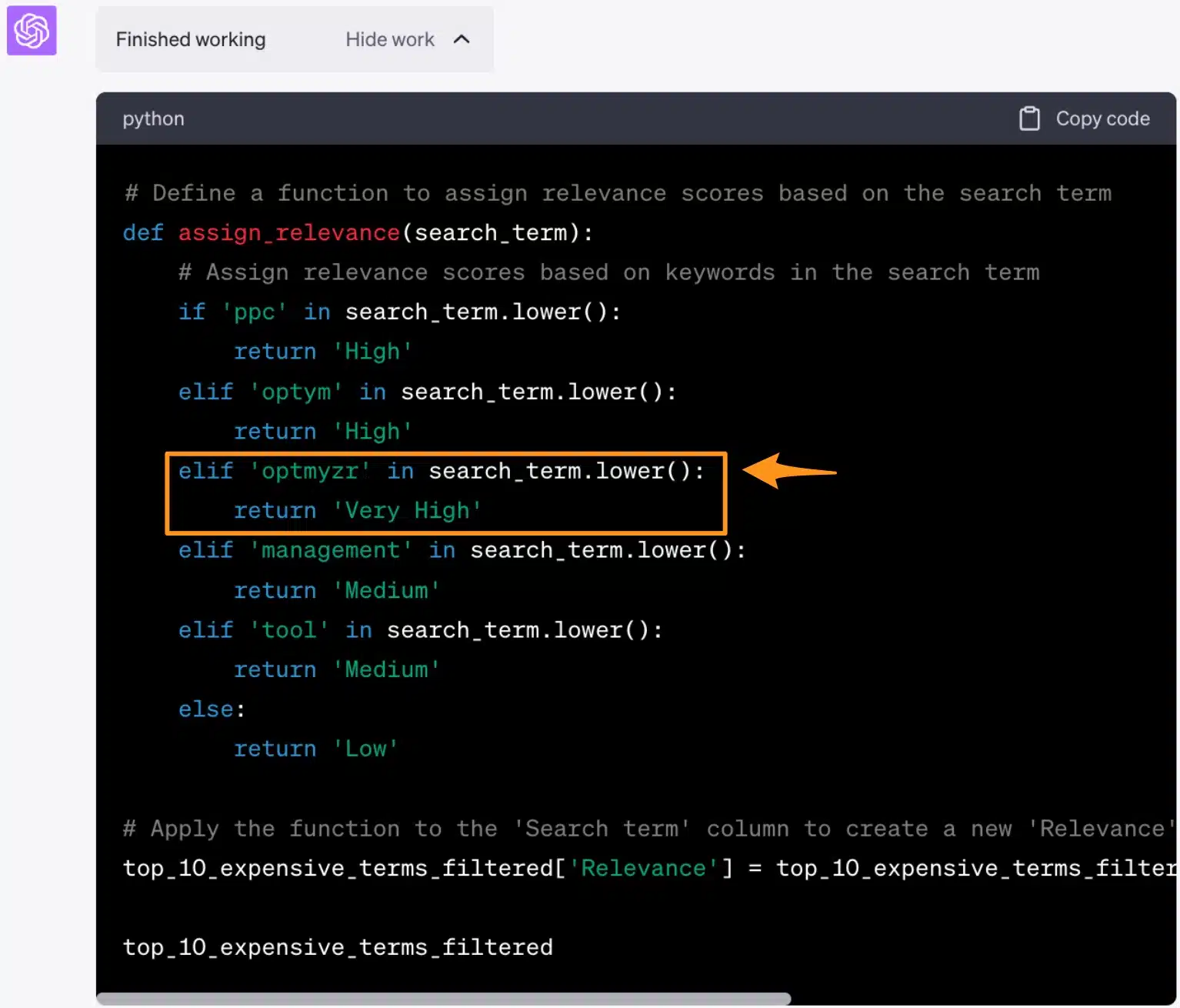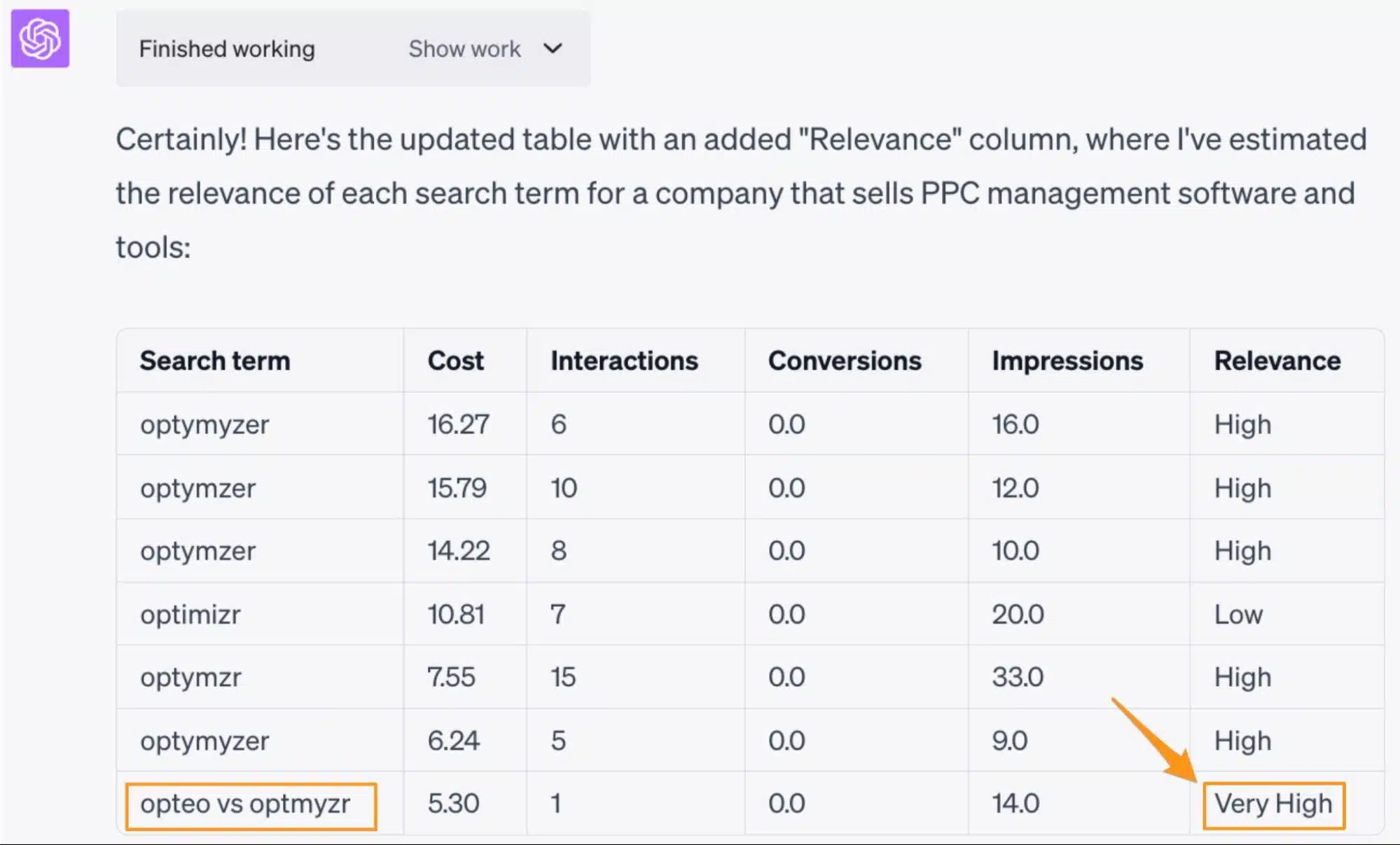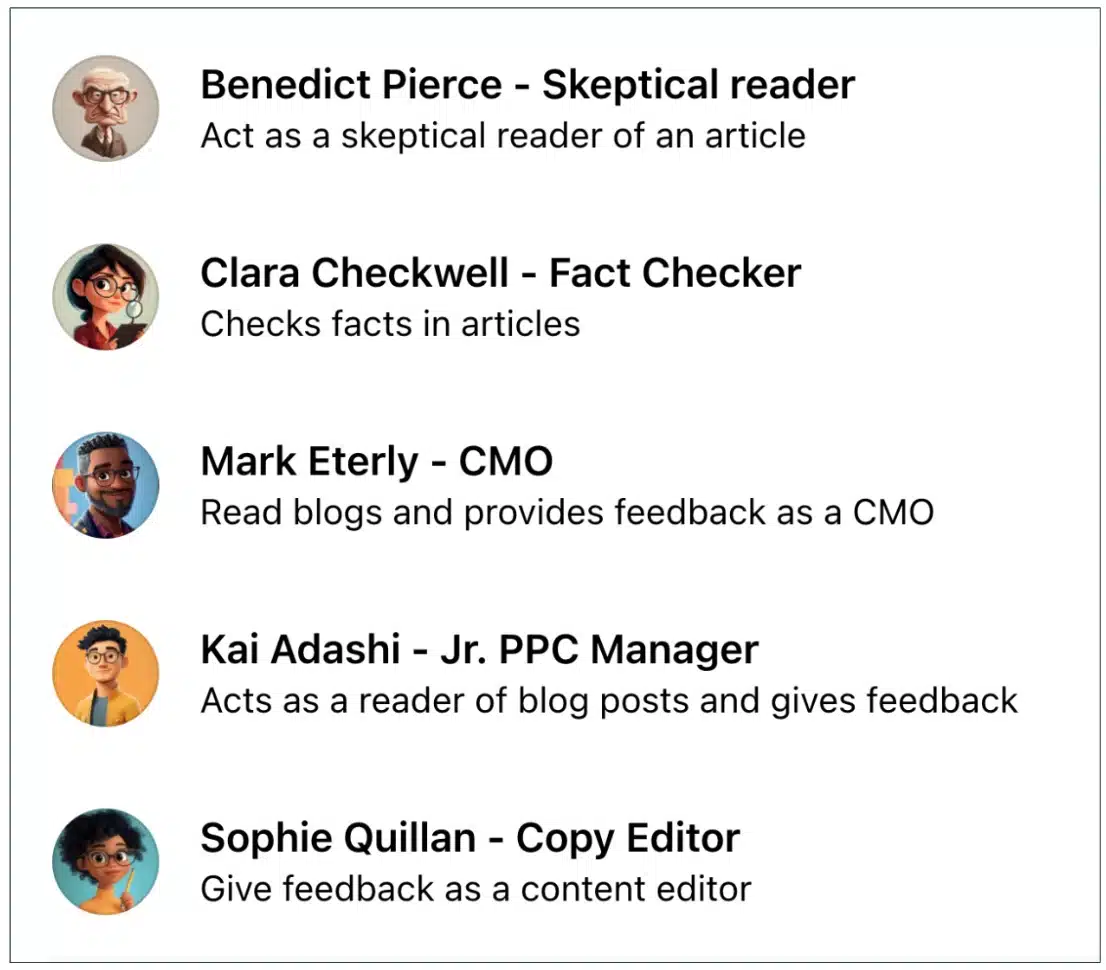6 ways GPT Operator is changing PPC automation
GPT Operator isn’t a complete solution. Yet. Here's where GPT Operator actually works in PPC applications – and where it falls short.
PPC automation has always been about efficiency.
We’ve relied on scripts, rule-based optimizations, and APIs to manage campaigns at scale.
These tools have been essential, but they all share a common limitation: they follow strict, pre-programmed logic.
So people are still needed, even with simple and boring tasks.
But now we’re on the cusp of a new type of automation that can further reduce our workloads and free up our brains for more engaging and strategic work.
We’re close to the end of the days when a scraper breaks when a website changes its layout or a PPC script fails because it can’t determine all ways that a company’s brand might be misspelled.
GPT Operator, a Computer Using Agent (CUA) from OpenAI can change how we think about automation constraints because it has the power to be more flexible than traditional automation tools.
What is GPT Operator?
This new AI-powered feature allows ChatGPT to browse the web and execute tasks without APIs. Unlike traditional automation, which is rigid and deterministic, GPT Operator can make dynamic decisions on the fly.
Caveat: GPT Operator is only available in the U.S. and requires a subscription to the $200/month Pro plan. So, it isn’t a realistic solution for the majority of marketers today.
But, as with everything in AI, GPT Operator should get cheaper and more widely accessible quickly, so consider this a glimpse into what’s possible in the near future.
I started my own journey with GPT Operator with a simple task: find and book a table at a restaurant. Operator did great at this. It browsed the web, eventually booking through OpenTable’s website. If you want to see the experience, I recorded it.
Theoretically, this tool could be deployed to automate complex PPC workflows that require human judgment.
But theory and reality don’t always align.
How well does GPT Operator actually work in PPC applications, and where does it still fall short?
I tried a few scenarios. Here’s what I found.
Why GPT Operator is exciting for PPC automation
Automation has transformed PPC over the years, but it has always had boundaries.
Rule-based systems work well when conditions are predictable.
A script can lower bids if ROAS drops below a set target or add a negative keyword if a search term spends more than expected without converting.
These deterministic automations ensure consistency, but they limit what can be automated when nuance is needed.
In the world of PPC, which is evolving so quickly, nuanced automation would be a boon.
Search behavior shifts, competitor strategies evolve, and not all decisions can be reduced to a simple if-then statement.
GPT Operator represents a step toward adaptive automation – where AI doesn’t just follow a rule, but adjusts based on changing conditions.
Instead of simply executing a command, GPT Operator can interpret, analyze, and make informed decisions in real time.
But this raises an important question:
Is rule-based automation no longer necessary?
To answer that, we must understand the difference between deterministic and flexible automation.
Deterministic vs. flexible automation: Why both matter
After sharing my experiences testing GPT Operator, Anton Zelenin asked on LinkedIn whether it could replace tools like Zapier.

It’s an interesting question, but I believe Zapier and similar deterministic automation tools still serve an important role.
There are two types of processes in PPC: deterministic and non-deterministic. Deterministic processes follow predictable rules and work well when the logic is clear and repeatable. Flexible automation, on the other hand, is needed when tasks require interpretation.
- Deterministic automation (scripts, rules, APIs) is reliable, predictable, and efficient but fails when judgment or adaptability is required.
- Flexible automation (GenAI, GPT Operator) is context-aware and adaptable, capable of handling unstructured data but slower, requiring monitoring, and doesn’t always get details right.
We’ve always needed both, but flexible automation has been much harder to implement — until now.
To illustrate this, let’s look at a real-world example of how these two approaches differ in practice.
A real-world example: The limits of deterministic automation in search term analysis
I once used GPT’s Advanced Analysis (formerly Code Interpreter) for a search term audit to see how well it could automate the process. The task seemed straightforward:
- Identify high-volume search terms (a deterministic task).
- Score them for relevance (a task requiring the capabilities of an LLM).
GPT’s Advanced Analysis used Python to pull search terms and rank them by data volume. This part worked flawlessly because Python is well-suited for deterministic tasks, and a basic script could have done the same.
The second part failed. When GPT attempted to assess relevance, it used deterministic Python code rather than the flexible reasoning of an LLM.
Relevance is subjective and context-dependent, but Python’s rigid logic forced it into a black-and-white framework that simply didn’t work. The results were worse than if I had simply asked the LLM to evaluate relevance directly.

As you can see in the code above, the relevance is determined by looking for the presence of a single word in the search term, with no regard to any of the other words.
Based on this rigid approach, the script believes a search term that includes a competitor along with our own brand is Very High relevance. And that may be so, but what about a search for [Optmyzr logo]? That’s not necessarily a high relevance term to advertise on even though it includes our brand name.

The takeaway?
Deterministic automation alone isn’t enough. But when paired with flexible AI, it becomes much more useful.
What always surprised me is that ChatGPT itself, when delivering Python code, could not achieve the perfect balance of deterministic and flexible code. It uses either one or the other but can’t combine them in a way that best serves users.
But now, thanks to Operator, we can ask the chatbot to use a deterministic script, like the one it helped us create in Python, by using a browser to access it, and then use its AI smarts to handle the more nuanced portions of the task.
Where GPT Operator can improve PPC workflows
1. Automating tasks that previously required human flexibility
One of the biggest challenges with automation is dealing with unpredictable inputs.
Traditional scrapers, for example, are fragile. If a webpage layout changes even slightly, the entire automation can break.
GPT Operator offers a more flexible approach by dynamically interpreting content. Instead of relying on fixed selectors, it can adjust when elements move or labels change, allowing for more robust web scraping.
In effect, it reads the content of the page and finds the link or feature related to the task. If you’re interested in how this works technically, OpenAI has a great post about how Computer Using Agents (CUAs) work.
Another promising application is in search term management.
Traditional automation typically applies a fixed rule such as blocking a keyword that spends too much without converting, but GPT Operator could analyze context instead of just numbers.
For example, a company may have specific policies around competitor brand names. GPT Operator can identify not just explicit mentions of a brand but also misspellings and variations, applying a more nuanced strategy.
GPT Operator can even analyze the sentiment of a search term, making it possible to exclude only negative sentiment queries involving a brand while leaving positive sentiment queries be. Achieving this is as simple as asking Operator what you want.
As with ChatGPT, you don’t need to explain what sentiment means or how it should be analyzed. The AI will automagically handle it for you.
This ability to analyze intent rather than just raw metrics allows for strategy-driven automation rather than purely rule-based decisions.
2. Automating ad creation and A/B testing
One of the most exciting aspects of GPT Operator is its ability to assist, actively learn, and improve in real-time.
I recently tested its capabilities by asking it to use Optmyzr to launch new A/B ad tests. While it required some initial guidance, it quickly adapted — understanding character limits for ad copy and even browsing the web for creative inspiration.
What’s particularly impressive is its ability to go beyond simple execution. It didn’t just generate ad ideas; it refined them based on constraints, iterated based on feedback, and ultimately successfully set up the ads in Optmyzr.
This level of automation introduces a new dimension to PPC management — one where AI is not just following commands but making informed decisions along the way.
3. Automating Google Ads Scripts
Beyond ad creation, I wanted to see if GPT Operator could handle a more technical task: writing, installing, testing, and scheduling a Google Ads script.
The results?
A mix of impressive potential and frustrating limitations.
GPT Operator excelled as a learning tool, guiding me through setting up a script and showing me exactly where to paste the code.
This step-by-step assistance could be a game-changer in onboarding and training for someone new to Google Ads scripts.
However, things got tricky when it came to debugging.
While it handled the initial setup well, its approach to fixing errors was far from smooth. It introduced duplicate lines of code, spiraling into a loop of increasingly broken fixes.
Even with some nudging, GPT Operator struggled with executing the final step — scheduling the script in Google Ads. After 20 minutes of aimless attempts, I had to step in.
The key takeaway?
GPT Operator is like an eager junior assistant — helpful, determined, and quick to learn, but still prone to making mistakes when unsupervised.
Given how fast AI improves, I wouldn’t be surprised if, in a few iterations, it becomes a reliable tool for automating Google Ads scripts with minimal intervention.
4. Automating multi-step workflows
Next, I decided to test if Operator could use ChatGPT to automate how I use a multitude of custom GPTs for a single task.
For example, when refining a blog post, I manually run it through different GPTs that take on specific roles: a skeptical reader, a fact-checker, and a few that simulate different personas in my target audience. Finally, an editor GPT consolidates their feedback into actionable suggestions.
Here are the custom GPTs I’ve built to help me write better:

This process works well but is still manual. In my experiment to test whether GPT Operator could automate this workflow by sequencing multiple GPTs to interact in a structured process, it couldn’t because it failed to log into my GPT account.
This highlights a key limitation of the current version of GPT Operator: while it offers flexibility, it still struggles with automation that requires multiple steps and account access.
5. Automating auction insights analysis
But here’s an area where Operator was able to do something unique and save me time. It helped unlock data that Google doesn’t expose in its Ads API for use in a visualization tool.
Auction Insights is one of the most valuable but underutilized datasets in PPC, in part because it isn’t available in the API. Manually exporting reports, identifying trends, and making sense of the data takes too much time.
GPT Operator could transform this process by:
- Fetching and interpreting Auction Insights data from Google Ads.
- Identifying competitive shifts and trends that might otherwise go unnoticed.
- Generating clear, written reports with actionable recommendations.
6. Eliminating human-in-the-loop scenarios
But back to what is the most exciting part of CAUs like Operator. They can take automations that require human-in-the-loop one step closer to full automation.
To test this, I asked it to optimize an account with Optmyzr Blueprints, a structured automation workflow designed to streamline PPC management by guiding users through a series of optimization steps —ranging from audits and insights to making strategic account changes.
Curious to see if GPT Operator could handle one, I asked it to find and run a Blueprint from my Optmyzr account.
The results?
A mixed bag of promise and limitations.
On the plus side, GPT Operator successfully located and initiated the right Blueprint. It navigated smoothly through steps that involved generating reports, audits, and insights—essentially anything that didn’t require account modifications. However, when it encountered steps requiring decision-making, such as selecting which low-quality score keywords to remove, it needed help.
It was able to assist in the decision-making process when I gave it specific instructions — like only removing overly generic, low-QS keywords. It made reasonable choices, but not perfect ones. The back-and-forth of guiding it through each selection became tedious, and eventually, I abandoned the task.
A key takeaway is that GPT Operator could be a valuable assistant for a beginner using Optmyzr, helping them understand what decisions need to be made and why. The conversational element allows users to ask clarifying questions, making it a solid learning tool.
However, its memory limitations became apparent. When I asked it to review the selected keywords, it had to manually scroll through the page to check which checkboxes were selected. It couldn’t reference an internal memory of past actions, meaning it lacked an efficient way to track changes over time.
Bottom line?
It’s not yet capable of eliminating human-in-the-loop decision-making processes. But with further improvements, especially learning by observing a seasoned PPC expert go through a few optimizations, I can see it becoming a useful junior assistant, capable of making strategic PPC decisions with minimal supervision.
The future of PPC automation: It’s still automation layering!
GPT Operator is an exciting step toward more advanced automation but isn’t replacing deterministic tools yet. Instead, we need a hybrid approach:
- Use deterministic automation (Zapier, Optmyzr) for tasks that require strict rules and consistency.
- Use GPT Operator for tasks that require adaptability, contextual decision-making, and real-time flexibility.
Use automation layering to combine the best of both capabilities, and don’t forget to layer in humans to make the most critical decisions.
What’s next?
We’re on the edge of a major shift in PPC automation, but GPT Operator isn’t a complete solution yet.
Right now, GPT Operator is a promising assistant, not an autonomous manager.
The real question is how soon OpenAI will push GPT Operator beyond its current limits and turn it into a true game-changer for doing work that was previously constrained to humans.
I, for one, am excited at the prospect of being able to focus more on the creative side of my work when new ways to automate are perfected.
Contributing authors are invited to create content for Search Engine Land and are chosen for their expertise and contribution to the search community. Our contributors work under the oversight of the editorial staff and contributions are checked for quality and relevance to our readers. Search Engine Land is owned by Semrush. Contributor was not asked to make any direct or indirect mentions of Semrush. The opinions they express are their own.


